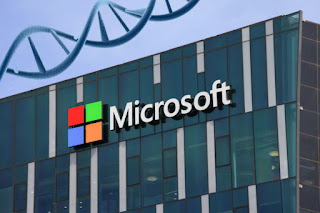Microsoft Partners With Biotech Companies On Programming Biology
Microsoft Partners With Biotech Companies On Programming Biology
To produce new medicines and potential materials, which may be applicable to a range of industries, Microsoft intends to bear its programming capabilities on biotech, whose purpose is to provide an end- To build a two-end platform.
The Station B study team of the Technology giants - based on Microsoft Research's first "wet" molecular biology laboratory, is located in Cambridge, UK, is partnering with a trio representing industry, technology, and education: Jean and Cell Therapy Manufacturer Oxford Biotechnica, Laboratory Software Developer Synthase, and Princeton University
Andrew Phillips, chief of Microsoft's biological computing, said that in programming biology, there is the ability to solve some of the world's most difficult problems in medicine and on the basis of sustainable technologies, it is also the foundation of future bio-economy.
Microsoft's new devotion is more than a decade of research to process data from the biological system, in its structure, its station reflects the team of Q and works in quantum computing.
Together with Oxford Biomedica, Microsoft hopes that its platform will improve the yield and accuracy of viral vector distribution systems for gene therapy, which will help in reducing the cost of products through machine learning and cloud calculation.
Oxford will contribute a large dataset to the analysis of the initial two-year collaboration, while researchers develop into the silicon model of biological processes used in production.
Jason Slingsby, Chief Business Officer of Oxford Biomedica, who organizes a contract with Novartis, supplies his veg material for Jean Therapy, said that it works on our digital framework initiative established in 2018, and Work is being done in a rapid and rapid collaboration with synthesis.
To create the flexible design, simulation, and execution of next-generation processes to execute complex experimental designs, including static producer cell lines for lentiviral vectors.
Synthase will also help in developing applications for conducting reproduction of experimental experiments in a variety of automated laboratory mechanisms, besides, to scale data efforts in computer-aided biology.
In the meantime, Princeton University will take the system B's system towards understanding the bacterial biofilm, which can play a role in disease, transmission, and antimicrobial immunity.
Since the initial academic partner of Station B, Princeton researcher will analyze the proteins created by cholera germs as a basis for the help of biofilms, which can develop the disease anywhere and fight treatment.
By genetically programmed to bring different proteins to light, they have the ability to determine the quantities of how and where apart from catalogs and construction of elements.
It follows the match between other large firms looking to connect bio with the likes of big companies Apple, Google, and IBM, trying their hands in biology, either the up-and-coming startup Are teaming with or financing areas such as aging or cancer
Microsoft Partners With Biotech Companies On Programming Biology
 Reviewed by Tech Gyan
on
March 16, 2019
Rating:
Reviewed by Tech Gyan
on
March 16, 2019
Rating:
 Reviewed by Tech Gyan
on
March 16, 2019
Rating:
Reviewed by Tech Gyan
on
March 16, 2019
Rating:










